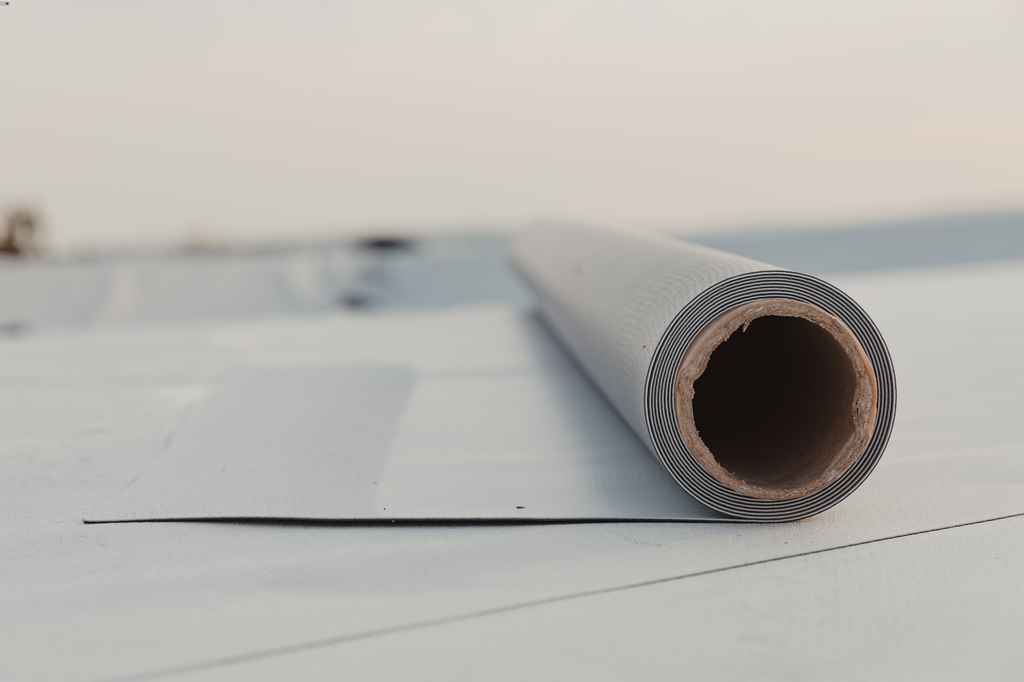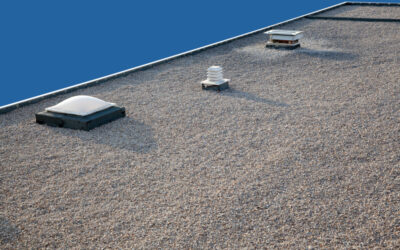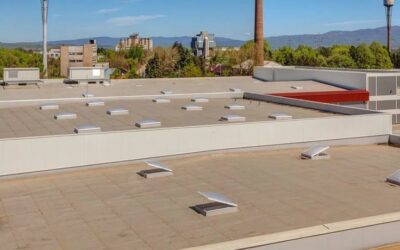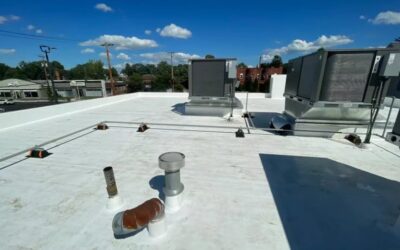What is a TPO Roof?
TPO stands for thermoplastic polyolefin. TPO roofs are made from a blend of various types of rubber instead of plastics and are made up of three layers: the TPO polymer base, a polyester-reinforced fabric center called scrim, and a TPO compounded upper ply. TPO roofs are a relatively new roofing system having been invented in 1986 and gaining in popularity throughout the 1990s. Research on TPO roofs is ever-evolving making them even better as time goes by.
Advantages of TPO Roofs
TPO roofs offer a wider variety of benefits to Philadelphia property owners.
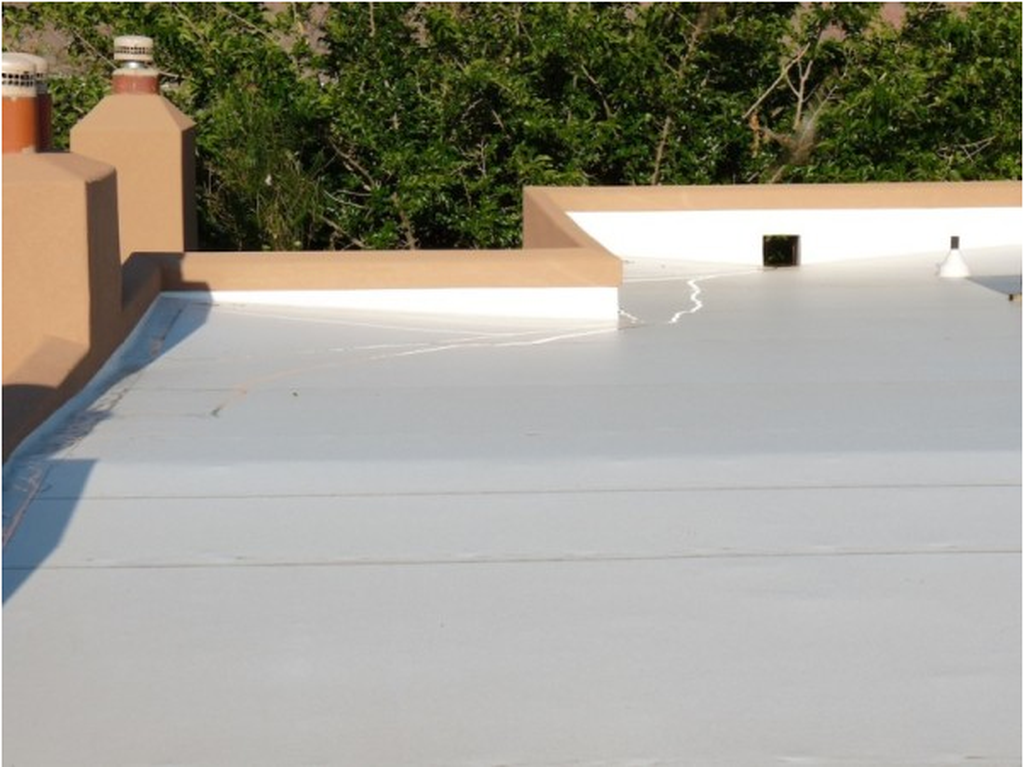
Image via hunterchaserealty.com
Affordability
One of the biggest advantages of TPO roofs is their affordability. In comparison to another common commercial, low-slope roofing systems, TPO is relatively inexpensive without sacrificing a lot of quality.
Versatility
While TPO is most commonly used in commercial applications, it has its place in residential roofing as well. There are a variety of color options available to match your aesthetic and even colored options are manufactured to be UV resistant.
Ease of Installation
TPO is extremely lightweight and easy to install. TPO roofs can be installed with either adhesives or fasteners and can even be heat welded around roof protrusions. The fast, easy installation process for TPO roofing systems will help with cost savings.
Low Maintenance
TPO roofs are very durable, resisting punctures and tears, mold and mildew growth, and dirt accumulation. TPO is also a flexible material that allows for shifting as the building settles and the roof expands and contracts due to heat.
Energy Efficiency
Most TPO roofs are white which offers them reflective properties, but, as mentioned, even those that aren’t white are manufactured with UV resistance. This means that TPO roofs can greatly reduce your cooling costs in the hot Philadelphia summers.
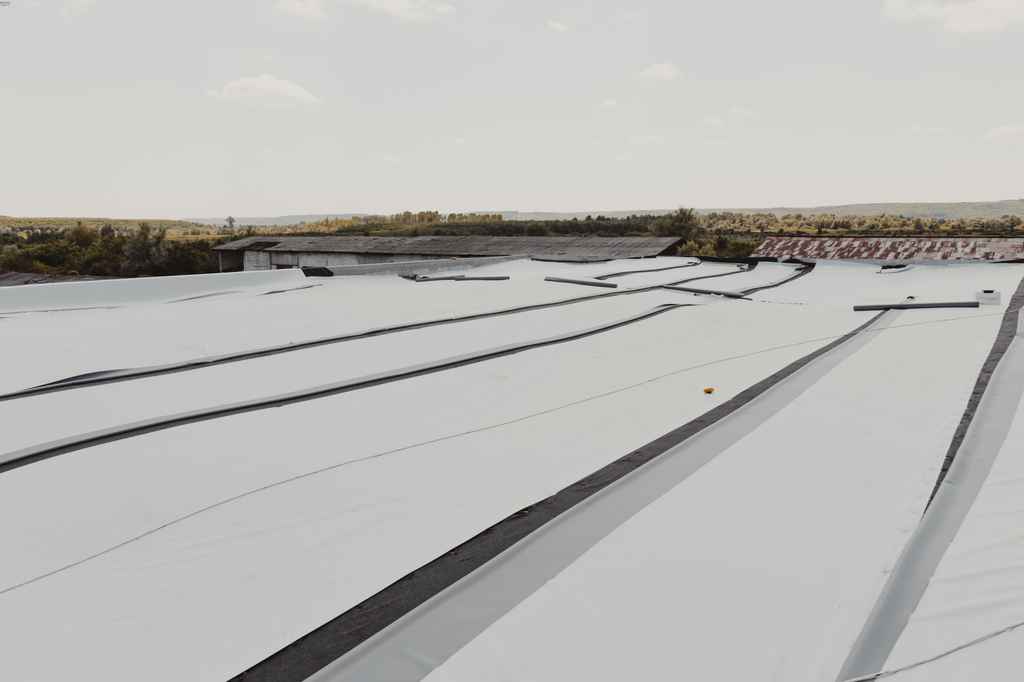
Disadvantages of TPO Roofs
Like anything, TPO roofing systems have some drawbacks that will need to be considered as well.
Relatively New
Because TPO roofs are relatively new in the grand scheme of commercial roofing systems they haven’t passed the test of time the way other materials have. They’ve become increasingly popular over the last 30-40 years and research and testing are still ongoing to create the best formulas possible for long-lasting and durable products.
Variable Quality
Partially due to their newer nature, quality can vary greatly between manufacturers. With formulas and processes regularly changing not all manufacturers will be producing the highest quality available. This can also lead to variability in thickness and longevity. It can be difficult to assess just how long a TPO roof will last because they’re still somewhat untested.
Lamination
TPO roofs have a laminated upper layer which can create weak points that are prone to shrinking and cracking. As more research is completed this is becoming a less common problem.
Multiple Seams
TPO rolls are relatively narrow, typically being sold in six to eight-foot widths. This means that there will be seams in the roof every six to eight feet which can create vulnerable spots in the roof where the membrane can become loose and lead to water leaks.
Is a TPO Roof Right for Your Philadelphia Property?
If you’re in the market for a new roof for your commercial property in Philadelphia a TPO roof might be exactly what you’re looking for. After determining a budget and deciding on your functional and aesthetic needs, you can weigh the pros and cons of TPO to make the best decision for your property. Need help? Call Industrial Roofing Contractors in Philadelphia to schedule a free estimate and allow us to help you decide!


